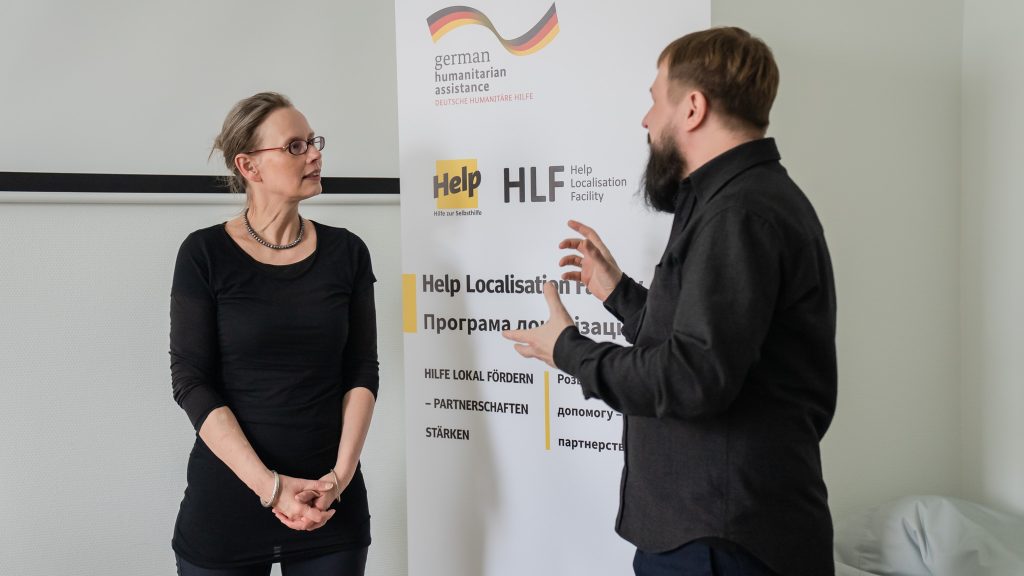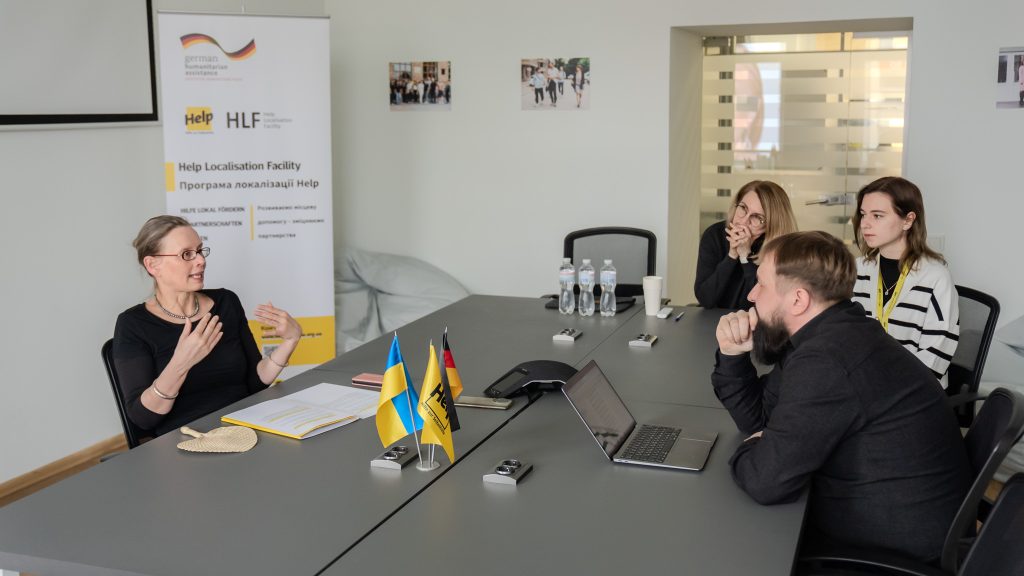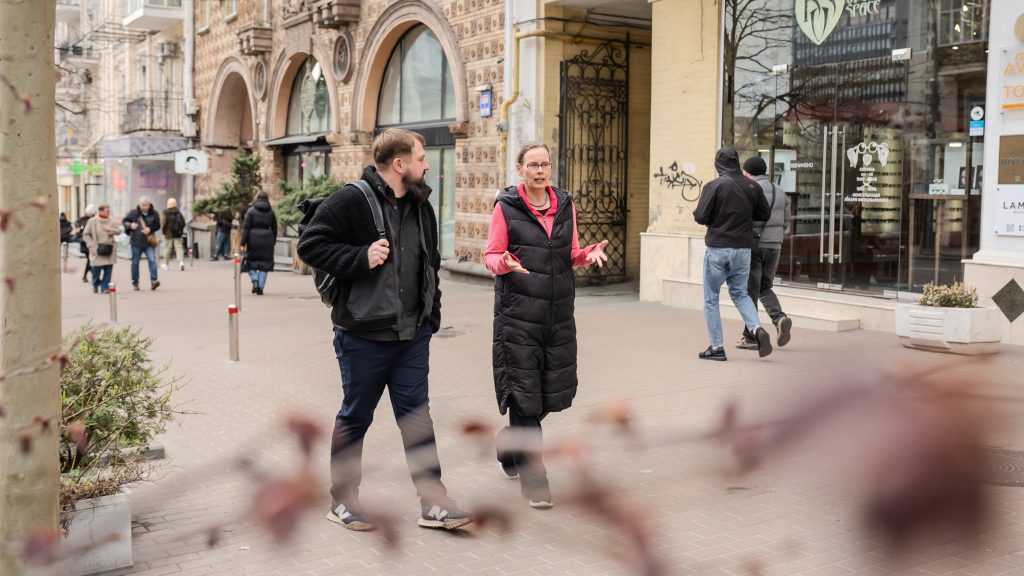True localisation is not just about transferring resources. First and foremost, it is about trusting local actors and recognising their right to participate in policy-making, programme planning and fund allocation on equal terms with international partners

Last week, Gritt Richter, Programme Manager of HLF Help – Hilfe zur Selbsthilfe, gave an interview to Humanitarian Media Hub. In the conversation, she shared her vision of what true localisation of aid in Ukraine should look like – not on paper, but in action.
“We are launching the Help Localisation Facility (HLF) in Ukraine, a tool that provides not only funding but also a system of joint decision-making. The programme aims to support Ukrainian NGOs working at the frontline of the humanitarian response in communities where the needs are obvious and the response needs to be fast and flexible. HLF’s vision is to empower them to set priorities, plan and implement solutions on their own.

In his interview, Gritt Richter emphasises that true localisation is not just about transferring resources. First and foremost, it is about trusting local actors and recognising their right to participate in policy-making, programme planning and fund allocation on equal terms with international partners. Instead of a model where international organisations make decisions and delegate implementation, HLF offers a co-management approach – where Ukrainian organisations have a real say in which projects are implemented, how they are funded, and which communities they benefit.
This approach allows us to build stronger, more resilient local institutions that are able not only to respond to crises but also to take responsibility for the long-term development of communities. And this, according to Richter, is what localisation is all about – a true partnership that changes the humanitarian system from the inside out.

Read more about HLF’s approach to localisation in the full interview here.

